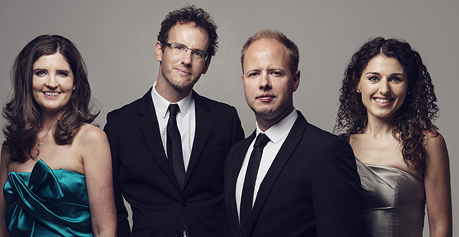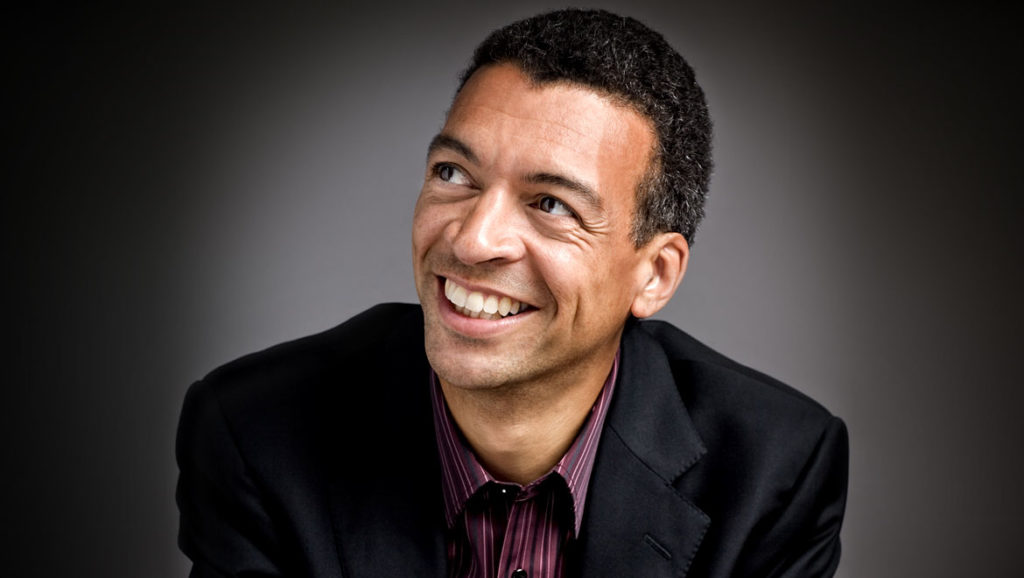
Streetwise Opera/Roderick Williams/Carducci Quartet, Castle Howard Long Gallery, July 26
SO to RyeStream’s finale. It opened with the advertised – presumably filmed in advance – grand ensemble performance of Schubert’s The Linden Tree, otherwise known as Der Lindenbaum, sung in a Jeremy Sams translation.
The choir consisted of members of Streetwise Opera and Genesis Sixteen (The Sixteen’s junior offshoot), with Roderick Williams starring in brief baritone solos, accompanied by pianist Christopher Glynn and the Brodsky Quartet.
The song represents one of the few comforting moments in Die Winterreise (Winter’s journey), justification enough for its inclusion here. Apart from Williams, who appeared to be strolling along a farm track on open downs, all the rest were seen in isolation (the Brodskys also outdoors), some blowing away lime leaves marked with optimistic mottos. It was a brave effort and remarkably tidy, if not quite what Schubert had in mind.
The serious part of the proceedings involved the Carducci Quartet, under the resolute leadership of Matthew Denton, in works by Philip Glass and Beethoven. Glass’s Third String Quartet is derived from his score to Paul Schrader’s experimental 1984 film Mishima. Its six movements all employ minimalist techniques, though in the Carducci’s hands there were clear-cut distinctions of mood between them.

Some were merely relentless, testing the ensemble’s concentration. But elsewhere, shifting accents – groups of four notes made to sound as if in groups of three, for example, thereby teasing the ear (you could call it trompe l’oreille) – kept interest alive as harmonies melted in and out.
While one can genuinely admire the technical prowess of both composer and performers here, it is harder to become emotionally involved with such repetitive processes. The Carducci were as persuasive as one could imagine.
Their Beethoven – the Op 95 Quartet in F minor, nicknamed “Serioso” for that rare marking in the second half of its second movement – was another matter altogether. The work was written in the white heat of Beethoven’s emotional turmoil after his rejection by Therese Malfatti and reflects the composer at his most volatile. The terseness of the Carducci’s approach was just what the doctor ordered.
Their crisp unison at the start presaged tight ensemble throughout the opening movement. Even the seemingly gentle Allegretto had an underlying tension, preparing for the extremely violent outburst of the serioso section, which is actually a scherzo (though joke-free). The unsettled rondo’s ending – a devil-may-care piece of opera buffa in F major – came as much-needed light relief. The Carducci know their Beethoven well, if this reading is anything to go by. Let us have them back in the flesh when conditions allow.
A final word on Patrick Allan’s camera work, which has generally been first-class. With the Carducci, we predominately saw individual players, when the great joy with string quartets is seeing the players’ interaction – which in turn is an aid to listening. This we were largely denied. No matter, this concert series has generally worked superbly. It is available online, free of charge, until August 16. Strongly recommended – but do make a donation if you possibly can.
Review by Martin Dreyer
